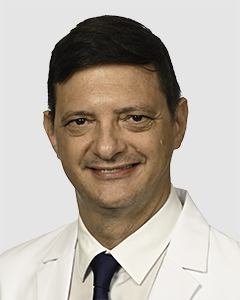Depending on the severity, Type 2 diabetes can affect your life in small or major ways. Modern medicine offers a variety of routes to keeping blood sugar at a healthy level.
In the near future, you may have an entirely new option for steadying your blood sugar. The potential solution has a mouthful of a name — duodenal mucosal resurfacing, or DMR.
Lowdown on Type 2 Diabetes
Ideally, your body produces enough insulin to keep your blood sugar, also called glucose, flowing through your blood. That glucose provides energy. If you have Type 2 diabetes, either your pancreas doesn’t make enough insulin or your body doesn’t use the insulin the way it should. You’ll then have too much sugar in your blood.
You’ll likely live easily with Type 2 diabetes if you see a doctor regularly, eat the way you’re told and take your medications regularly. If not, you risk serious side effects. In extreme cases, your Type 2 diabetes can lead to:
- Foot loss
- Vision loss
- Heart disease
- Kidney failure
- Hearing loss
- Stroke
How You’re Probably Managing Your Blood Sugar Now
Over the years, the medical community has come up with pharmaceutical and surgical ways to keep Type 2 Diabetes under control:
- Traditional drugs such as metformin, sulphonylureas, pioglitazone and GLT2 inhibitors.
- Newer drugs in the GLP-1 agonist category. They work differently and have additional benefits: They might decrease your appetite, which may lead you to lose as much as 15 percent of your body fat, and that might also help with your diabetes.
- Insulin, which you’ll inject, to help your body use its blood sugar more efficiently.
- Bariatric surgery. A weight-loss procedure known as duodenal switch rewires how your body digests food. The food bypasses the top of the bowel, known as the duodenum. The duodenum is key to your body’s insulin engine, so this procedure might decrease the severity of, or even end, your Type 2 diabetes.
New Treatment Offers Promise
If approved by the FDA, the outpatient medical procedure duodenal mucosal resurfacing, or DMR, is likely to become another option for treating Type 2 diabetes.
Essentially, the doctor will get rid of the interior of your duodenum; that bowel lining is called the mucosa, and it’s nearly identical to the pink inside of your lips. This simple and pain-free procedure is done endoscopically, which means through your mouth. After you fall asleep thanks to anesthesia, the doctor will put a coil down your throat and into your duodenum. Using gentle pulses, the coil will zap your mucosa away.
Your mucosa has tiny nerve cells that connect to the brain and, through those, somehow level blood sugar.
So far, clinical trials show that DMR will lead to your Type 2 diabetes being under control for at least a year, maybe two, until your mucosa grows back. Glucose levels will drop to healthier rates, and a blood marker called H1C will drop by 1.5 to 1.8, the same amount as with effective medications. Over time, you can have the procedure done again as necessary.
As a bonus, the mucosa has no pain receptors, so your insides won’t even be sore when you wake up. You’ll simply have less severe Type 2 diabetes or none at all. You’ll be able to reduce or eliminate your blood sugar drugs.
Clinical studies are testing DMR at 33 U.S. medical facilities, including Orlando Health, and within a few years the procedure might become a game-changer. Better yet, it doesn’t only control damage from Type 2 diabetes. It might even help identify the root cause. If that happens, duodenal mucosal resurfacing will be revolutionary.





